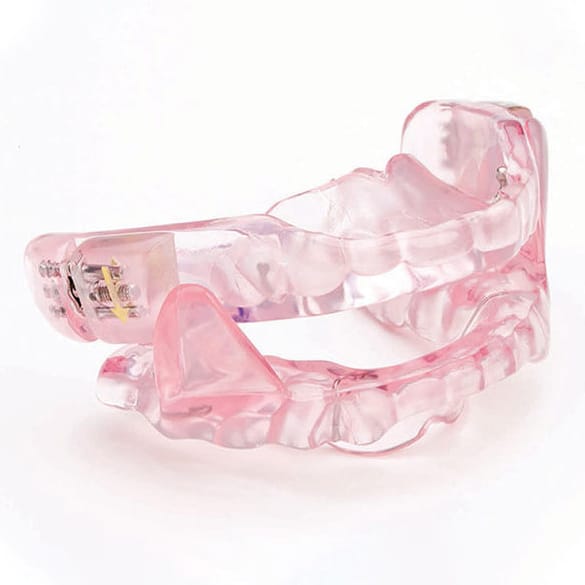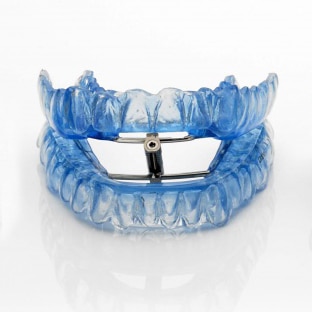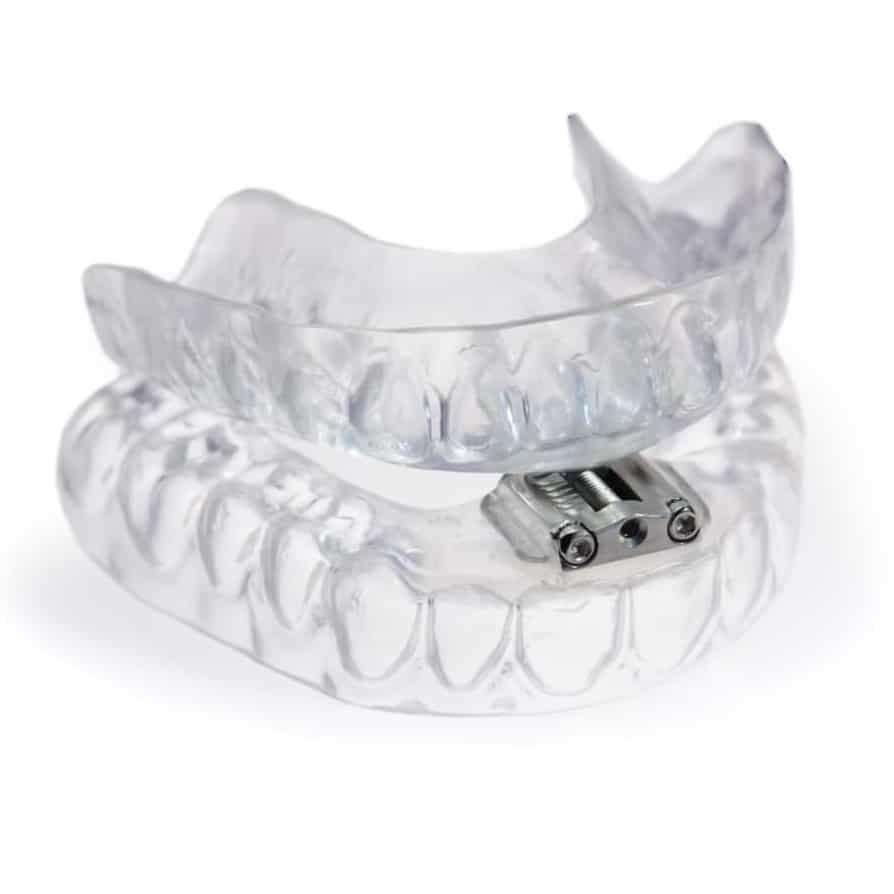Loud Persistent Snoring
Is Your Snoring Disturbing Your Partner's Sleep?
Snoring can be an embarrassing problem and contributes to disturbed sleep for your bed partner and household. Lifestyle changes may be the first treatment approach. Very loud snoring with periods of silence may indicate a more serious problem such as Obstructive Sleep Apnoea (OSA). Most people who snore do not have OSA, but most people who have apnoea snore.
Lifestyle changes can help you reduce your snoring:
- Losing weight
- Sleep on your side
- Quit smoking
- Reduce alcohol consumption
- Avoid taking sleeping pills
We can also help you reduce your snoring by providing you with a gum shield-like device.
Snoring, breathing and sleep
Sleep Apnoea Can Affect your Health and Quality of Life
Obstructive Sleep Apnoea (OSA) is a condition in which breathing stops, accompanied by gasping and loud snoring episodes when sleeping. This causes a decreased oxygen supply which affects the quality of your sleep and can have a detrimental effect on your health. OSA may lead to daytime drowsiness, forgetfulness and mood changes.
Risk Factors:
- Snoring
- Excess Weight
- High Blood Pressure
- Alcohol Consumption
- Anti-Depressants
- Being Male
- Over 50 years of Age
- Smoking
Left untreated it can lead to:
- Daytime sleepiness
- Decreased quality of life
- Hypertension
- Stroke
- Heart failure
- Greater chance of driving accidents
- Increased mortality
- Depression or changes in mood
Mandibular Advancement Devices are one of the most effective methods for treating OSA and snoring.



Many People Suffer from Sleep Apnoea without realising it
We Can Help You Sleep and Feel Better
Your dentist will be able to determine whether you are snoring as many people do, or if there needs to be further tests to determine the severity of the suspected OSA. Diagnosis of OSA will involve referring you for a sleep test to confirm the diagnosis and proceed with the appropriate treatment.
At our dental practice, we will be able to provide you with a custom made Mandibular Advancement Device (MAD) which will hold your jaw forwards, keeping your airway open while you sleep.
Once the MAD is fitted, several appointments are required to adjust the advancement and monitor your symptoms. Success with the treatment depends on making a habit of wearing the device and your regular attendance to visit your specialist at the practice.
